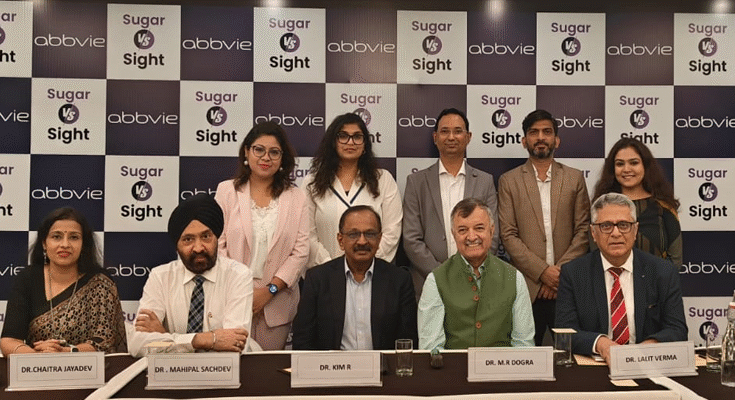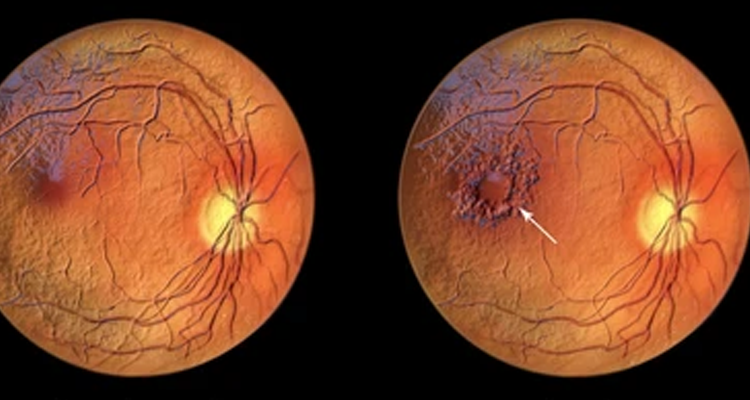Sugar vs Sight: Addressing the Race to Prevent Diabetes-Related Blindness
JNS: AbbVie, a global biopharmaceutical leader, organized the National Conclave on World Retina Day at the India Habitat Centre, New Delhi, to spotlight the growing threat of Diabetic Macular Edema (DME)—a leading cause of vision loss in people living with diabetes.
According to a 2025 Cleveland Clinic report, one in every 14 people with diabetes develops DME. With India’s diabetic population projected to rise sharply, experts at the conclave underscored the urgent need for early detection, wider access to treatment, and stronger policy measures to prevent diabetes-related blindness.
Call for Urgent Interventions
Despite advancements in treatment, experts highlighted key barriers such as:
-
Limited awareness among patients
-
High treatment costs
-
Frequent treatment regimens involving multiple injections
-
Unequal access to specialized retinal care, especially in tier-2 and tier-3 cities
Panel discussions stressed the importance of policy-level reforms, including:
-
Integrating mandatory retinal screening into national diabetes programs
-
Expanding public–private partnerships to improve access to care
-
Deploying trained specialists beyond metropolitan areas
AbbVie’s Commitment
Suresh Pattathil, Managing Director & General Manager, AbbVie India, said:
“At AbbVie, we leverage over 75 years of global eyecare expertise to make a meaningful difference for the 3 million people living with Diabetic Macular Edema in India. With India’s diabetic population forecast to reach 134.2 crore by 2045, the race between sugar and sight is intensifying. Through early detection, wider access to breakthrough therapies, and innovative solutions, we aim to safeguard vision and help eliminate preventable blindness.”
Expert Panel Voices
The conclave brought together leading ophthalmologists, endocrinologists, and healthcare policymakers, including Dr. Lalit Verma, Dr. Mahipal Sachdev, Dr. R. Kim, Dr. M.R. Dogra, Dr. Chaitra Jayadev, and Dr. Shashank Joshi.
Key takeaways:
-
Dr. Lalit Verma: “DME is becoming one of the foremost causes of preventable blindness among working-age Indians. Early detection is crucial.”
-
Dr. Mahipal Sachdev: “Routine retinal screening should be integrated into diabetes care pathways to prevent irreversible vision loss.”
-
Dr. M.R. Dogra: “Affordable and accessible eye care beyond metros is vital for protecting vision in underserved regions.”
-
Dr. R. Kim: “Community-level awareness and technology-driven outreach can greatly reduce the risk of blindness in rural and semi-urban areas.”
-
Dr. Chaitra Jayadev: “Public understanding of diabetic eye complications remains alarmingly low—awareness must be prioritized.”
-
Dr. Shashank Joshi: “Managing diabetes effectively is the first step to preventing complications like DME. Ophthalmologists and endocrinologists must work hand in hand.”
Understanding Diabetic Macular Edema (DME)
-
What it is: A diabetes-related eye disease where prolonged high blood sugar damages retinal blood vessels, leading to leakage, swelling, and eventual vision loss.
-
Why it matters: Often silent in early stages, DME is one of the leading causes of blindness in working-age adults.
-
The challenge in India: With over 100 million diabetics, the number at risk of DME is set to rise steeply. Yet, awareness remains low compared to other complications like kidney or heart disease.
Experts at the conclave stressed that public education, regular retinal check-ups, affordable therapies, and systemic healthcare reforms are crucial to preventing irreversible blindness.




